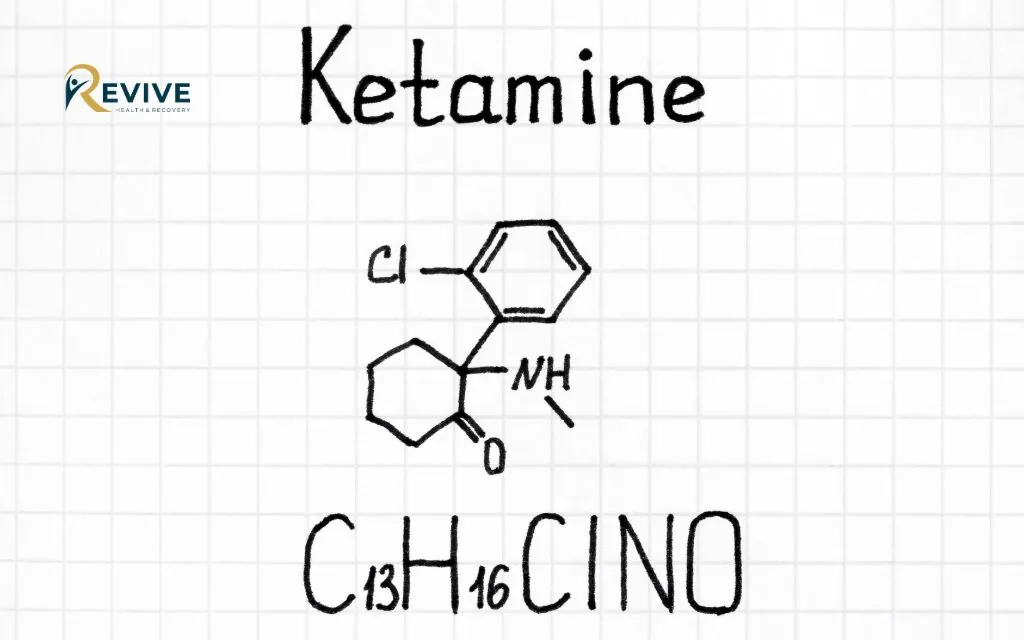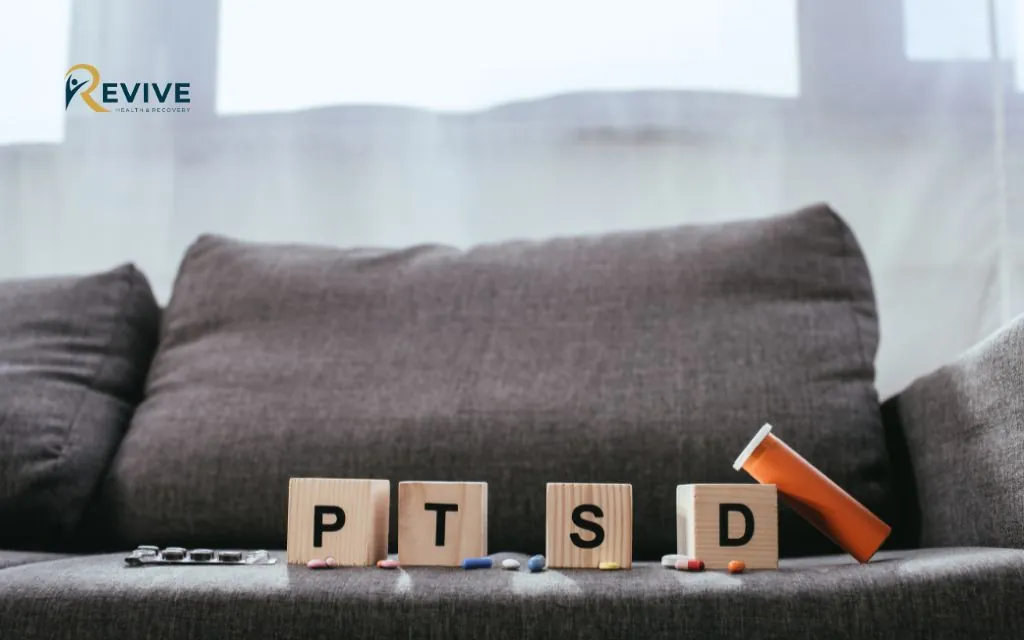Complex Post-Traumatic Stress Disorder (C-PTSD) creates profound challenges for those who experience it. Unlike traditional therapies that often take weeks or months to provide relief, ketamine for complex PTSD therapy offers a rapid-acting alternative with promising results. Research from Mount Sinai shows up to 67% symptom reduction in some patients’ Trauma Recovery Insights – significantly outperforming placebo treatments.
Denver has emerged as a center for innovative mental health treatments, with multiple clinics now offering ketamine therapy specifically for trauma-related conditions. If you or someone you care about struggles with C-PTSD and hasn’t found relief through conventional approaches, understanding ketamine therapy options in Denver could provide a new path forward.
What Is Complex PTSD? Beyond Standard PTSD
Root Causes and Key Differences
Complex PTSD develops from prolonged or repeated traumatic events rather than single incidents. These traumatic experiences often occur during vulnerable periods, particularly childhood, and may include ongoing abuse, neglect, domestic violence, or prolonged captivity. While not officially classified as a separate diagnosis in the DSM-5, mental health professionals recognize Complex PTSD as a distinct condition with unique treatment considerations.
The repetitive nature of trauma fundamentally alters how the brain processes stress and danger, creating more pervasive changes than those seen in standard PTSD. This distinction explains why many standard PTSD treatments provide incomplete relief for those with complex trauma histories.
Symptoms That Define Complex PTSD
Complex PTSD encompasses all standard PTSD symptoms, including intrusive memories, flashbacks, nightmares, avoidance behaviors, and hypervigilance. However, it adds several distinctive features:
- Severe emotional dysregulation and difficulty managing feelings
- Persistent negative self-perception and overwhelming shame
- Disturbed relationship patterns and trust issues
- Dissociative experiences and detachment
- Loss of meaning and hopelessness
These symptoms create substantial barriers to daily functioning and quality of life, affecting work performance, relationships, and overall wellbeing.

Why It’s Hard to Treat
Traditional trauma therapies often struggle to address Complex PTSD effectively for several reasons. The condition frequently presents alongside other mental health disorders such as depression, substance use disorders, and anxiety disorders, creating complicated treatment needs. Standard approaches may help with some symptoms while leaving others untouched, particularly the deep-rooted identity and emotional regulation challenges.
Additionally, many patients develop treatment resistance after multiple unsuccessful therapy attempts, making them less responsive to conventional interventions. This treatment resistance creates the need for innovative approaches—which is where ketamine therapy enters the picture.
Ketamine 101: How It Works for Complex PTSD
From Anesthetic to Breakthrough Therapy
Ketamine began its medical journey as an anesthetic in the 1960s and remains an essential medicine on the World Health Organization’s list. Its unique properties allow it to provide sedation and pain relief while maintaining respiratory function, making it valuable in emergency and surgical settings.
In recent years, research has revealed ketamine’s remarkable effects on mood disorders and trauma-related conditions. As a dissociative anesthetic that acts as an NMDA receptor antagonist, ketamine works differently from traditional psychiatric medications. The FDA’s 2019 approval of esketamine (Spravato) for treatment-resistant depression opened doors for broader therapeutic applications, including off-label use for Complex PTSD.
The Science Made Simple
Ketamine produces rapid therapeutic effects through several mechanisms. It blocks NMDA receptors, increases glutamate activity, and stimulates BDNF (Brain-Derived Neurotrophic Factor) production. In practical terms, ketamine essentially helps “rewire” the brain’s stress circuits.
Research published in Neuropsychopharmacology demonstrates how ketamine promotes the growth of new neural connections, particularly in brain regions damaged by chronic stress and trauma. This neuroplasticity allows the brain to develop healthier response patterns and process traumatic memories without triggering overwhelming emotional reactions.
The therapy also appears to reduce activity in the default mode network—brain regions active during rumination and negative self-talk—providing relief from the persistent negative thoughts common in Complex PTSD.
Why Ketamine for Complex PTSD Stands Out
Ketamine’s most remarkable feature is its rapid onset of action. While traditional psychiatric medications typically require weeks to produce effects, ketamine often provides symptom relief within hours or days. This quick response proves particularly valuable for patients in crisis or those who have waited years for effective treatment.
Additionally, ketamine demonstrates effectiveness in treatment-resistant cases. A comprehensive systematic review found that ketamine therapy helped patients who hadn’t responded to multiple previous treatment attempts, offering hope to those who have exhausted conventional options.

Benefits and Risks of Ketamine Therapy
What Patients Gain
Patients with Complex PTSD who respond to ketamine therapy report several significant improvements:
- Rapid relief from intrusive trauma memories and flashbacks
- Decreased emotional reactivity and improved regulation
- Reduced anxiety and hypervigilance
- Greater capacity for processing traumatic memories in therapy
- Improved sleep and decreased nightmares
The Mount Sinai study mentioned earlier found that ketamine reduced PTSD symptoms by 67% compared to just 20% with placebo treatment. For many patients, this improvement translates to functional changes that allow them to engage more fully in work, relationships, and daily activities.
Potential Side Effects
As with any medical treatment, ketamine therapy includes potential side effects that patients should understand before beginning treatment:
- Dissociative experiences during treatment (feeling detached from reality)
- Temporary increases in blood pressure and heart rate
- Nausea or dizziness
- Perceptual changes or mild hallucinations during administration
- Fatigue after treatment sessions
These effects typically resolve quickly after each session. Treatment always occurs under medical supervision to ensure safety and manage any adverse reactions. A review on the potential of ketamine notes that long-term effects remain under study, emphasizing the importance of ongoing research.
Who Should Avoid It
Ketamine therapy isn’t appropriate for everyone. Specific contraindications include:
- Uncontrolled hypertension
- History of psychosis or schizophrenia
- Severe liver disease
- Pregnancy or breastfeeding
- Untreated substance use disorders
- Certain cardiac conditions
A thorough medical evaluation before beginning treatment helps identify any risk factors and ensures patient safety.

Research Spotlight: What Science Says
Key Studies to Know
The scientific evidence supporting ketamine for Complex PTSD continues to grow. The Mount Sinai study represents one of the most significant clinical trials, demonstrating substantial symptom reduction in chronic PTSD patients after just six ketamine infusions.
A meta-analysis published in a systematic review examined data from multiple studies and found consistent evidence for ketamine’s efficacy in reducing PTSD symptoms across different patient populations. The analysis revealed response rates significantly higher than those seen with conventional medications.
Recent research also shows that ketamine may specifically target trauma-related memory reconsolidation, potentially weakening the emotional intensity of traumatic memories without erasing them—addressing a core mechanism of PTSD symptoms.
Where Research Is Heading
Despite promising results, ketamine research for Complex PTSD faces several limitations. Many studies involve relatively small sample sizes, and long-term follow-up data remains limited. Questions about optimal dosing protocols, treatment frequency, and maintenance strategies require further investigation.
Future research will focus on identifying which patients benefit most, determining ideal treatment protocols, and understanding how to integrate ketamine therapy with trauma-focused psychotherapy for optimal outcomes. Studies examining the neurobiology of trauma and how ketamine specifically addresses these mechanisms will help refine treatment approaches.
Ketamine Therapy in Denver: Your Local Options
Top Clinics at a Glance
Denver offers several specialized clinics providing ketamine treatment for Complex PTSD, each with unique approaches and services:
Revive Health Recovery – Our comprehensive ketamine infusion therapy for Complex PTSD in Denver integrates medical expertise with trauma-informed care. We offer personalized treatment plans, flexible scheduling, and evidence-based protocols designed specifically for trauma recovery.
Rocky Mountain Mind and Body – Provides both IV ketamine infusions and Spravato treatment with a focus on integrating ketamine therapy with ongoing psychological support.
Vitalitas Denver – Offers customized ketamine infusion protocols specifically for PTSD and trauma, with extended therapy packages available.
Klarisana – Specializes in trauma-focused ketamine therapy with variable dosing approaches depending on symptom presentation.
Owl & Eagle Health and Wellness – Combines ketamine treatment with integrative wellness approaches addressing whole-person healing.
What to Expect in Treatment
A typical ketamine treatment protocol for Complex PTSD at Revive Health Recovery begins with a comprehensive evaluation to assess medical history, trauma background, and treatment goals. This establishes your personalized treatment plan.
During treatment sessions:
- You’ll arrive at the clinic and complete brief pre-treatment assessments
- Medical staff will place an IV line and connect you to monitoring equipment
- The ketamine infusion typically lasts 40-60 minutes in a calm, comfortable environment
- You’ll remain under medical supervision throughout the experience
- A recovery period of 30-60 minutes follows before discharge
Many patients report dissociative experiences during treatment—often described as a dream-like state where traumatic memories feel less threatening. Some experience emotional release, while others describe visual or sensory changes.
Treatment typically involves a series of 4-6 initial sessions over 2-3 weeks, followed by maintenance treatments as needed. The clinic provides transportation recommendations since patients cannot drive after treatment.

Real Stories: Denver Patients Share Their Journeys
A Veteran’s Turnaround
Michael, a 42-year-old veteran from Denver, struggled with Complex PTSD for over a decade following multiple combat deployments. Despite years of conventional therapy and medication trials, his symptoms remained debilitating.
“I couldn’t hold a job or maintain relationships,” Michael explains. “The flashbacks and nightmares controlled my life, and I’d lost hope that anything could change.”
After researching options, Michael began ketamine therapy at a Denver clinic. By his third session, he noticed significant changes: “The constant feeling of danger started to lift. I could go to public places without scanning for threats constantly.”
After completing six sessions, Michael reported a 70% reduction in his symptoms. He has since returned to work and rebuilt relationships with family. “It wasn’t a miracle cure—I still do therapy and work on my recovery—but ketamine gave me back the ability to function and feel hope again.”
What Locals Are Saying
“After twenty years of trying everything for my childhood trauma, ketamine therapy finally helped me feel present in my own life instead of constantly reliving the past.” – Jamie, 38, Denver
“The treatment itself was intense, but the relief afterward was worth it. For the first time, I can talk about my trauma without being overwhelmed by emotions.” – Sara, 45, Aurora
“What surprised me most was how quickly it worked. After years of medication changes with minimal results, experiencing relief after just two sessions was life-changing.” – Chris, 32, Lakewood
Beyond Ketamine: Complementary Approaches include Many Therapies
While ketamine offers promising results, most clinicians recommend combining it with evidence-based trauma therapies for comprehensive treatment:
Trauma-Focused Cognitive Behavioral Therapy (TF-CBT) helps patients identify and challenge trauma-related thought patterns while developing coping skills. This structured approach complements ketamine’s neurobiological effects.
Eye Movement Desensitization and Reprocessing (EMDR) uses bilateral stimulation to help process traumatic memories. Many patients report enhanced EMDR outcomes following ketamine treatment.
Mindfulness practices help develop present-moment awareness and emotional regulation skills. These practices support the neuroplasticity ketamine promotes.
Some patients also benefit from somatic therapies addressing how trauma affects the body, as well as group therapy providing community support during the healing process.
The right combination of treatments depends on individual needs, symptoms, and preferences.

FAQs: Your Ketamine Questions Answered
Is ketamine safe and legal for Complex PTSD in Colorado?
Yes, ketamine therapy is both legal and safely administered in Colorado when provided by licensed medical professionals. While ketamine for psychiatric conditions represents an off-label use (except for Spravato), it follows established medical protocols. At Revive Health Recovery, our team ensures all treatments meet strict safety standards with comprehensive monitoring.
How fast does it work compared to other treatments?
Ketamine typically produces effects within hours to days, compared to traditional antidepressants and anxiety medications that often require 4-6 weeks. Many Revive Health Recovery patients report noticeable symptom improvement after their first or second session, though a complete treatment series offers the most substantial benefits.
What’s the difference between IV ketamine and Spravato?
IV ketamine infusion delivers racemic ketamine directly into the bloodstream, allowing precise dosage control and typically producing more profound effects. Spravato (esketamine) is a nasal spray containing only the S-enantiomer of ketamine. Revive Health Recovery offers both options, recommending the approach that best suits each patient’s specific needs and circumstances.
How much does it cost in Denver, and does insurance help?
In Denver, ketamine therapy typically costs $400-600 per session. While insurance coverage remains limited, some plans now cover portions of treatment, particularly Spravato. Revive Health Recovery offers various payment options and assistance with insurance documentation to make treatment more accessible.
How do I pick the right clinic?
Look for clinics with licensed medical professionals, specific experience treating Complex PTSD, clear safety protocols, and comprehensive patient support. Revive Health Recovery meets all these criteria and offers personalized consultations to determine if our approach aligns with your needs. We encourage patients to verify credentials, read reviews, and ask detailed questions about treatment protocols.
Why Revive Health Recovery Stands Out for Complex PTSD Treatment
Revive Health Recovery has established itself as Denver’s premier destination for Complex PTSD treatment through our comprehensive, patient-centered approach to ketamine therapy. Our distinction comes from several key factors that create optimal patient outcomes:
Specialized Expertise in Trauma Treatment
Our medical team brings specialized trauma training and ketamine expertise that few facilities can match. Every provider completes advanced certification in trauma treatment and stays current with cutting-edge research in NMDA receptor antagonists and the neurobiology of trauma.
Personalized Treatment Protocols
We implement personalized treatment protocols based on individual trauma histories and symptom presentations. Unlike clinics offering standardized approaches, we recognize that Complex PTSD manifests uniquely in each person and requires tailored treatment. Our success rates for ketamine treatment for Complex PTSD near me exceed regional averages precisely because of this customization.
Trauma-Informed Environment
Our facility was designed specifically for trauma patients, featuring private treatment rooms with customizable lighting, sound, and comfort elements to minimize triggering experiences. The environment itself becomes part of the therapeutic process.
Comprehensive Integration Support
Integration support distinguishes our approach from basic infusion services. We pair ketamine treatments with specialized trauma therapy before and after each session, maximizing the neuroplasticity window that ketamine creates. This integration transforms temporary relief into lasting healing.
Proven Patient Outcomes
Most importantly, our patients consistently report exceptional outcomes, with over 85% experiencing significant symptom reduction. As Denver’s most referred ketamine provider for Complex PTSD among trauma specialists, we maintain the highest safety standards while delivering compassionate care.
Value-Based Investment in Recovery
When comparing the cost of ketamine therapy for Complex PTSD in Denver, consider the comprehensive nature of our program that addresses both immediate symptom relief and long-term recovery. Our treatment investment brings value through quality of life improvements that many patients describe as “priceless.”
Finding Relief: Your Next Steps
Ketamine therapy represents a breakthrough option for Complex PTSD patients who haven’t found relief through conventional treatments. Its rapid action, effectiveness for treatment-resistant cases, and ability to address core trauma symptoms make it a valuable addition to the treatment landscape.
Denver’s qualified providers, including Revive Health Recovery, offer evidence-based ketamine therapy in supportive, safe environments. For many local patients, these treatments have provided life-changing relief from previously intractable symptoms.
Ready to explore whether ketamine therapy might help with your Complex PTSD? Contact Revive Health Recovery today to schedule a consultation and learn more about how our specialized approach to ketamine treatment addresses the unique challenges of complex trauma. Our team combines medical expertise with compassionate care to support your healing journey.
For additional information, explore the research from Mount Sinai and other studies mentioned in this article, or reach out directly to our clinical team with specific questions about ketamine’s mechanism of action, therapeutic effects, and potential benefits for your situation.



